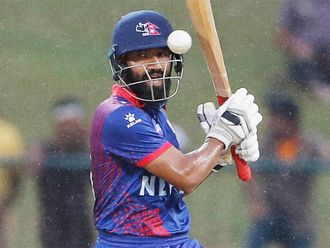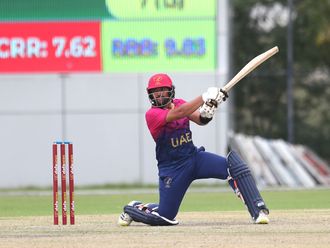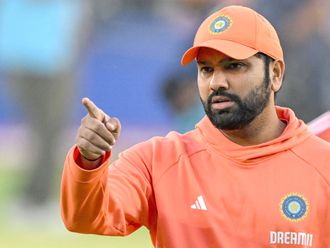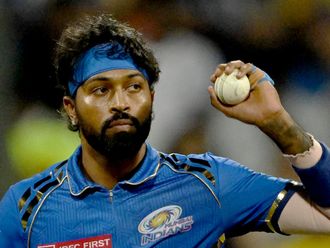Dubai: Will India play day-night Test matches? The Board of Control for Cricket in India (BCCI) has taken a strong stance against it by even stating that for the next 18 months they would not be willing to adapt to the change.
The International Cricket Council’s (ICC) Cricket Committee is scheduled to meet on Mumbai on May 28 and 29 and finalise playing conditions for the World Test Championship and plans are on to have day-night matches included in it.
India has taken a stance that they need more time, at least 12-18 months, before competing with foreign teams in day-night matches.
The proposed World Test Championship is scheduled to be begin after the 2019 World Cup, with the final scheduled for June 10, 2021. The BCCI is not wanting India to play day-night Tests till 2020.
India had already refused to play a day-night Test in Adelaide scheduled for December 6 to 10 stating that they need more time to get used to the pink ball. Indian off spinner Harbhajan Singh wants India to embrace the new form of Test cricket. He went on to say that only if the team plays day-night Test matches they will get used to it.
However, the ICC Cricket committee headed by former India captain Anil Kumble is going ahead with plans on the Test championship. This committee is also deliberating on whether to do away with the toss. This is mainly to reduce home advantage and leave it to the visiting side to elect whether to bat or bowl first.
This is also due to home team’s interference in Test pitch preparation to tilt the match in their favour. The toss of coin had existed from the very first Test, between England and Australia in 1877 to decide which team get to bowl or bat first. The toss was done away with in the 2016 County Championships and it was found that the decision lead to an even contest between bat and ball. However, a proposal to try it out in India’s domestic cricket was not approved.
The ICC committee may also decide that if a match is abandoned because the pitch or outfield is too dangerous for play to continue the match will be considered to have been won by the visiting team when the competition points are allocated for that series. Other recommendations may include a minimum gap of three days between Tests.
The other members of the ICC Cricket committee are Andrew Strauss, Mahela Jayawardene, Rahul Dravid, Tim May, the New Zealand Cricket chief executive David White, umpire Richard Kettleborough, ICC match referees chief Ranjan Madugalle, Shaun Pollock and Clare Connor. The cricket committee recommendations will be taken to the ICC’s chief executives’ committee during the annual conference in Dublin in June before being implemented.











